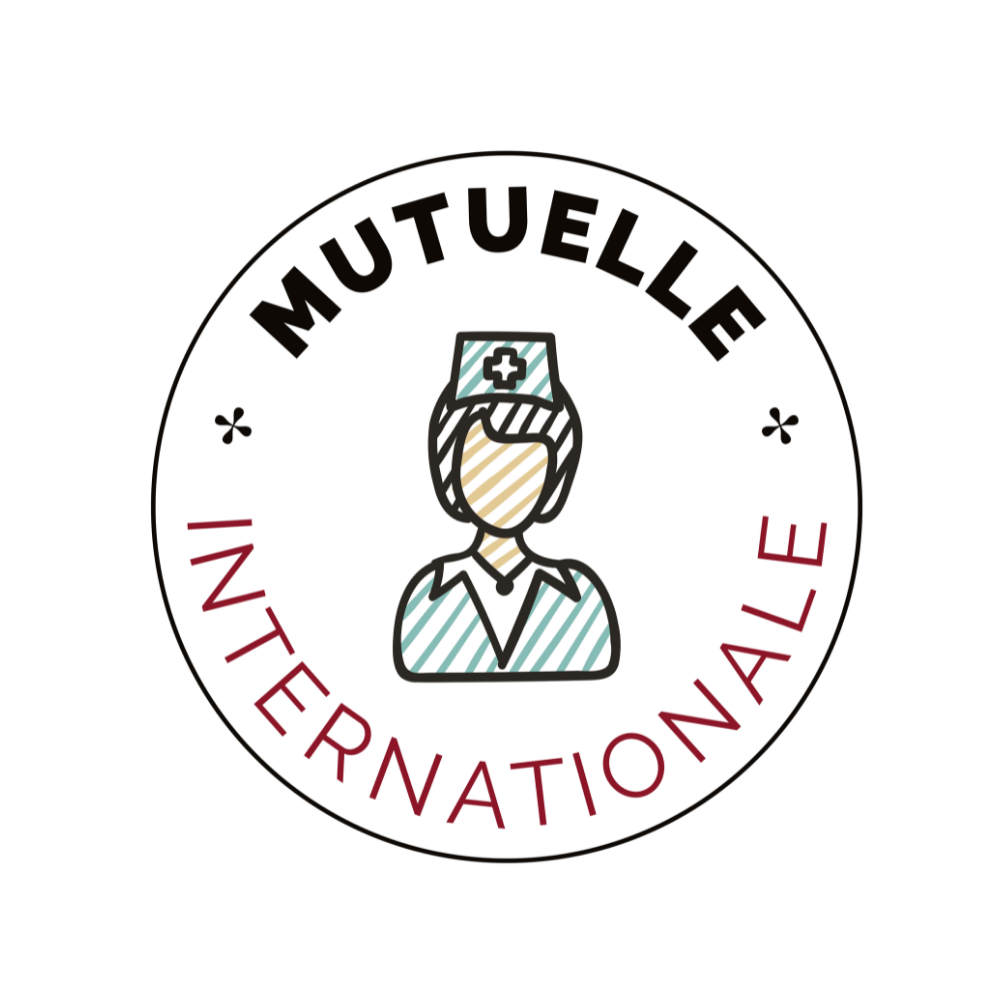Discover the keys to taking out international health insurance with ease. Essential steps explained for optimal protection during your travels abroad.
Choose the cover that suits your needs

Understanding the different types of coverage
To make an informed choice when it comes to international health insurance, it is essential to understand the various coverage options available. You can opt for basic coverage that covers routine medical care and hospitalizations, or choose more extensive coverage that includes specialties, prescribed medications and dental care. Make sure your insurance also includes repatriation assistance, especially important for people who travel frequently for business.
Evaluate your personal needs
Assessing your individual needs is a crucial step in choosing the right coverage. Consider your current health, medical history, and countries you visit regularly. A suitable insurance plan must offer rapid coverage of care in countries where medical costs are high.
- Review regular care needs
- Take into account the specific risks linked to travel
- Analyze your medical history
Consider exclusions and limitations
It is important to read the clauses of your contract carefully to understand the exclusions and limitations of your international health insurance. Some policies may not cover pre-existing conditions or specific treatments. Also check the reimbursement limits to make sure they meet your needs.
Compare offers from different companies
Comparison is a crucial step in finding the insurance that best meets your needs. Use online comparison sites or consult specialist brokers to obtain quotes and information on the different options available. Be sure to compare coverage levels, services offered and associated costs.
- Use online insurance comparators
- Consult specialized brokers
- Analyze coverage levels and services offered
Check the quality of customer service
The quality of customer service is an essential criterion, especially for international health insurance. Good customer service should be easily accessible, responsive, and able to meet your specific needs on the go. Check the availability of support in multiple languages and contact options, such as hotlines or online services.
Review payment and refund options
Finally, review the payment terms and reimbursement options of your international health insurance. Some companies offer monthly, quarterly or annual payments. Make sure the reimbursement process is quick and easy, with transparent communication on the status of your requests.
- Check payment options
- Evaluate the reimbursement process
- Ensure transparent communication
Discover the essential criteria to benefit from international health insurance. What are the acceptance conditions to take into account? Stay informed to make the right choice and protect your health abroad. Types of International Health Insurance Policies Available International health…
Discover the essential steps to take out international health insurance and travel with complete peace of mind! Determining your coverage needs Why is international health insurance essential? When traveling frequently for business, it is crucial to be prepared for all…
The essential criteria for comparing offers

Understanding the Coverage Offered
The choice of international health insurance is based primarily on the types of coverage offered. It is essential to check basic guarantees such as medical consultations, hospital care, dental and optical treatments, as well as maternity costs. Make sure specific needs, such as preventative care or chronic disease treatments, are included in the contract.
Evaluate Coverage Areas
The geographical area covered by the insurance is a determining criterion. Some insurance plans offer global coverage, while others focus on specific regions. Make sure the coverage area matches the frequency and destinations of your business travel. This will ensure that you are protected wherever you go.
Review Repayment Limits
Reimbursement limits vary from one insurance to another. It is crucial to know the maximum amounts that the insurer will cover for each type of care. Compare reimbursement limits to ensure that major medical expenses will be adequately covered, without you having to pay large sums out of pocket.
Emergency Assistance
Repatriation assistance is a key element, especially for those who travel frequently. In the event of a medical emergency, it is reassuring to know that you will be transported to your home country or an appropriate healthcare facility. Check the conditions for enabling this support and response times to ensure the service is responsive.
Quality of Customer Service
The availability and quality of customer service are crucial aspects. Good customer service ensures that emergency situations, inquiries and refund procedures are handled quickly and efficiently. Choose insurers that offer support 24 hours a day, 7 days a week, and in several languages.
Exclusion Conditions
Each international health insurance contract has exclusions, so it is essential to read the general conditions carefully. Common exclusions may include treatment for pre-existing conditions, acts of war, or extreme sports. Understanding these exclusions will help you avoid unpleasant surprises in the event of a claim.
Ease of Access to Care
Some insurers offer networks of health providers with whom they have agreements, thus facilitating access to care and the reimbursement process. Find out about these networks and choose those that include quality establishments in countries you frequently visit.
Cost and Premium Analysis
The cost of insurance is always an important consideration. Compare monthly or annual premiums, as well as any additional costs. Take into account the quality/price ratio by taking into account the coverage offered, the reimbursement ceilings, and the services included. Cheaper insurance isn’t always the best option if it doesn’t meet your coverage expectations.
Personalization Options
Finally, the possibility of personalizing your international health insurance contract according to your needs is a significant asset. Some companies offer additional modules that you can add to your basic coverage. These options may include travel insurance, coverage for sports activities or extensions for specific treatments.
Discover the essential documents for international health insurance! Clarity, precision and practical advice to go abroad with peace of mind. Proof of identity and passport The importance of proof of identity when purchasing international health insurance To take out international…
How to manage your international health insurance on a daily basis?
Find out how to simplify the daily management of your international health insurance by following these practical tips. Learn the essential steps to take out insurance adapted to your needs, guaranteeing complete coverage when traveling abroad. Optimize your peace of…
Preparing the necessary documents
Understand insurance company requirements
When purchasing international health insurance, it is crucial to know the specific requirements required by different insurance companies. Each insurer may have unique criteria regarding the documents needed to finalize your file. Typically, these requirements include personal information, proof of residency, and proof of income. By obtaining this clarification upfront, you will be able to prepare the necessary documents more efficiently, avoiding unnecessary delays.
Identity documents and proof of civil status
To establish your identity and marital status, insurance companies will commonly ask you for the following documents:
– Passport or national identity card
– Birth certificate
– Marriage certificate (if applicable)
These documents are used to confirm your status and authenticate your identity to the insurer. It is recommended to always have certified copies of these documents on hand.
Proof of address
Insurance companies often require proof of address to ensure your place of residence. Here are the generally accepted documents:
– Utility bills (water, electricity, etc.)
– Rental contract or deed of ownership
– Bank document or account statement showing your address
Make sure these supporting documents are up to date and clearly legible, as an incorrect address could cause complications.
Medical information and health history
Insurers usually require detailed information about your health to assess risks and arrange your coverage. You will need to provide:
– Medical records and treatment history
– Results of recent medical examinations
– List of your current medications
Some companies even ask for a health questionnaire to complete. Be honest and accurate to avoid invalidation of your insurance.
Proof of income
To prove your ability to pay insurance premiums, you may need to provide proof of income such as:
– Recent salary slips
– Tax returns
– Bank statements
This helps insurers check your economic situation and adjust the cost of your premium accordingly.
Travel documents
As someone who travels frequently for business reasons, you may need to provide information regarding your international travel:
– Details of previous business trips
– Planned travel itineraries
– Letters of invitation or mission orders (if applicable)
These documents will allow the insurer to personalize your coverage based on your specific needs.
Contact details and information
Finally, be sure to provide up-to-date, easily accessible contact information:
– Phone number
– E-mail address
– Permanent postal address
This information allows the insurer to contact you quickly if necessary and to ensure better responsiveness in terms of customer service.
By preparing these documents in advance, you optimize your chances of signing up for international health insurance quickly and efficiently.

What are the steps to take out international health insurance?
Discover in this article the key steps to take out international health insurance easily and with complete peace of mind. Don’t miss these essential tips for finding the ideal health coverage for your business and personal trips abroad. Understanding your…
How to choose the best international health insurance?
Find out how to choose the best international health insurance by following simple and clear steps. Find the coverage that suits your needs to travel with peace of mind. Understand your specific health needs Why is international health insurance essential?…
The online and in-person application process
Understanding international health insurance needs
Before you begin the application process, it is crucial to fully understand your international health insurance needs. Regardless of the frequency of your business travel, you will need to evaluate essential areas of coverage such as emergency medical care, hospitalization, and repatriation assistance. Also think about speed and ease of access to care.
The advantages of online application
Applying for international health insurance online has many advantages:
- Save time: Make the request from home without having to travel.
- Accessibility: You can submit your request at any time, even outside office hours.
- Easy Tracking: You can track your application status online and receive instant notifications.
Online application steps
To apply for international health insurance online, here are the steps you will need to follow:
- Visit the website of the insurer of your choice and go to the “Online Request” section.
- Create an account if necessary, providing basic information (name, email address, etc.).
- Complete the application form with detailed information about your personal and professional situation.
- Select coverage options that meet your specific needs.
- Submit required documents, such as copies of your identification documents and medical certificates.
- Review and confirm all details before submitting the request.
The benefits of applying in person
Opting for an in-person application also has its advantages:
- Direct interaction: You benefit from personalized and immediate advice from an insurance agent.
- Immediate assistance: If you have any questions or problems, you get answers right away.
- Document Submission: You can physically submit all required documents, which can speed up the process.
In-Person Application Steps
To apply for international health insurance in person, follow these steps:
- Contact the insurer’s local office to make an appointment.
- Prepare all required documents before the meeting (identity copy, medical records, etc.).
- Show up for your appointment and discuss your specific needs with the insurance agent.
- Complete the application form under the supervision of the agent.
- Submit all documents directly to the agent for verification.
- Confirm your request details with the agent before leaving the office.
Tips for a Successful Application Process
Whether applying online or in person, a few tips can help:
- Prepare your documents: Make sure you have all the necessary documents ready in advance.
- Compare offers: Take the time to compare different insurance policies to find the one that suits you best.
- Ask for clarification: If you are unsure about any part of the form or policy terms, do not hesitate to ask for clarification.
Why take out international health insurance?
Discover the essentials for taking out international health insurance: the essential reasons that will push you to take the plunge! The need for international health insurance when traveling or expatriating Why take out international health insurance? Traveling or living abroad,…
The deadlines to respect to benefit from the guarantees
Understanding wait times
It is essential to know the specific deadlines provided for in your international health insurance contract to take full advantage of your guarantees. These deadlines, often called “waiting periods”, are the periods before which certain guarantees are not yet active. For example, insurance may impose a three-month waiting period for maternity care.
Waiting times vary depending on the types of coverage: hospitalization, routine care, dental care, and other specific benefits. It is important to read your contract carefully to understand these deadlines and plan your care accordingly.
Waiting period for better risk management
Waiting periods allow insurers to prevent abuse and better manage risks. For example, someone cannot purchase insurance right before undergoing a costly medical procedure. This practice protects the pooling of risks for the benefit of all policyholders.
For this reason, waiting periods vary depending on insurance and types of care. Ask your insurer or read the clauses of your contract to avoid surprises.
Subscribe in time to benefit from the planned care
Planning is essential, especially if you know you may need certain types of care in the near future. For example, if you are planning a pregnancy or surgery, purchasing international health insurance well in advance is prudent.
Here are some planning tips:
- Plan ahead: Enroll as soon as you anticipate a future medical event.
- Consult the waiting periods specific to each guarantee.
- Keep track of waiting periods and note when they will expire.
By following these recommendations, you will be better prepared to manage your medical needs without added stress.
Importance of reading the fine print
Understanding the terms of your contract is essential. The small lines often contain critical information about waiting periods and other restrictions. Don’t let a lack of knowledge compromise your access to care.
Take the time to:
- Read your contract carefully.
- Ask your insurer for clarification if in doubt.
- Check your contract regularly for updates.
This diligence will allow you to get the most out of your international health insurance.
The importance of customer service
Having access to efficient customer service is crucial when you have questions about waiting periods or other aspects of your coverage. Good customer service will provide you with the information you need to use your insurance with confidence.
Quality customer service should offer you:
- Clear and quick answers.
- Personalized support to understand your plan.
- Assistance in the event of a medical emergency.
Do not hesitate to contact your customer service regularly to ensure that you are taking full advantage of your international health insurance.
What to do if you need medical care abroad
Understanding your international health insurance coverage
Before you leave, it is crucial to understand what your international health insurance covers. Make sure you have access to a booklet or detailed documentation of your insurance policy, covering aspects such as:
– Coverage of medical expenses
– Emergency care
– Hospitalization
– Prescription medications
Knowing the details of your coverage will avoid unpleasant surprises if you need medical care abroad.
Keep insurance documents handy
When traveling, always keep a copy of your international health insurance card and the contact details of your insurer. It is advisable to:
– Scan and save these documents to a mobile device
– Keep a paper copy in your hand luggage
– Share this information with a loved one who remains in your country of origin
These precautions will allow you to quickly access your insurance information when needed.
Identify licensed medical providers
Your insurer usually has a list of approved medical providers in different countries. Before your trip:
– Consult this list and note the recommended establishments in your destination country.
– Check that these providers accept your insurance.
– Write down the contact details of a few medical centers close to where you will be staying.
This will make it much easier to find appropriate care in an emergency.
Contact your insurance in case of emergency
If you need medical treatment abroad, contact your insurer immediately. Most insurance companies offer 24/7 support services. When you call:
– Explain the nature of your emergency.
– Request information about nearby medical providers.
– Follow your insurer’s instructions for administrative procedures and treatment.
Fast and effective communication with your insurer can facilitate your coverage and reimbursement of medical expenses.
Keep track of all medical expenses
To ensure timely and accurate reimbursement, it is essential to keep all documents relating to your medical care. This includes :
– Detailed invoices and receipts
– Medical prescriptions
– Medical reports and diagnoses
Scan and electronically save these documents to avoid loss. Send them to your insurer according to the terms provided by your insurance policy.
Use repatriation services if necessary
Your international health insurance often includes repatriation assistance in the event of a medical emergency. If you need to be repatriated:
– Inform your insurer immediately.
– Follow the specific procedures for organizing your repatriation.
– Make sure you understand the conditions for covering costs related to transport and care during repatriation.
By being aware of these services and how they are used, you will be able to ensure a safe and rapid return to your country of origin if the medical situation requires it.
